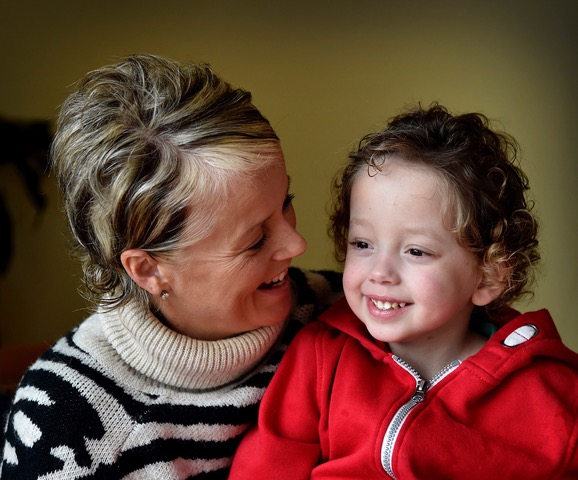Family stories
Awareness and understanding are key to enabling progress for childhood dementia. Here, families share their stories and shed light on what it’s really like living with childhood dementia.
Mia

Peta describes her daughter, Mia, as gutsy, sweet, mischievous and delightful. She was a first child, first grandchild and big sister. Sadly, Mia died when she was only 9 years old.
Here, Peta shares snippets from her journal, and memories of life with Mia and reflects on life now for herself and her family.
“Mia required 24-hour care and was completely vulnerable and dependent on us for all her needs. It was busy and all-consuming. I believe she also felt how loved she was. I hope she did."
Hudson, Holly and Austin
Renee is mum to Hudson (right), Holly (left) and Austin (front), who all have childhood dementia. In her candid video interiew with us, she shared her families' experiences so far, from diagnosis to the present day.
“I owe it to my babies and I am grateful to be part of this movement. It took me a long time to speak out, because each time I say it, it is a little more true. I want to be brave and confident for them."

Noah

Noah's mum, Jane, describes Noah as a happy and healthy baby who met all his milestones. He spent his days going to the beach, riding horses, playing with friends and his beloved giant groodle dog, Nyame. His world was full of joy and laughter.
“We used to say he is calm and almost zen ... in hindsight, these characteristics may have been a symptom."
Eddie
Ali describes her son, Eddie, as happy, cheeky and incredibly charismatic. “People were drawn to him," she says. “He was very generous and loved to joke."
When he was born, Ali was blissfully unaware Eddie had a fatal condition. “While in hospital for tests, I remember walking around and seeing kids with all sorts of medical conditions. I was thinking: ‘At least my little baby doesn't have that.'

Angelina's story
“Just two years ago, Angelina’s schoolwork showed full pages of neat writing, underlining, answering of questions and problem-solving. Now Angelina is lucky to write a few words or read simple sentences.”




